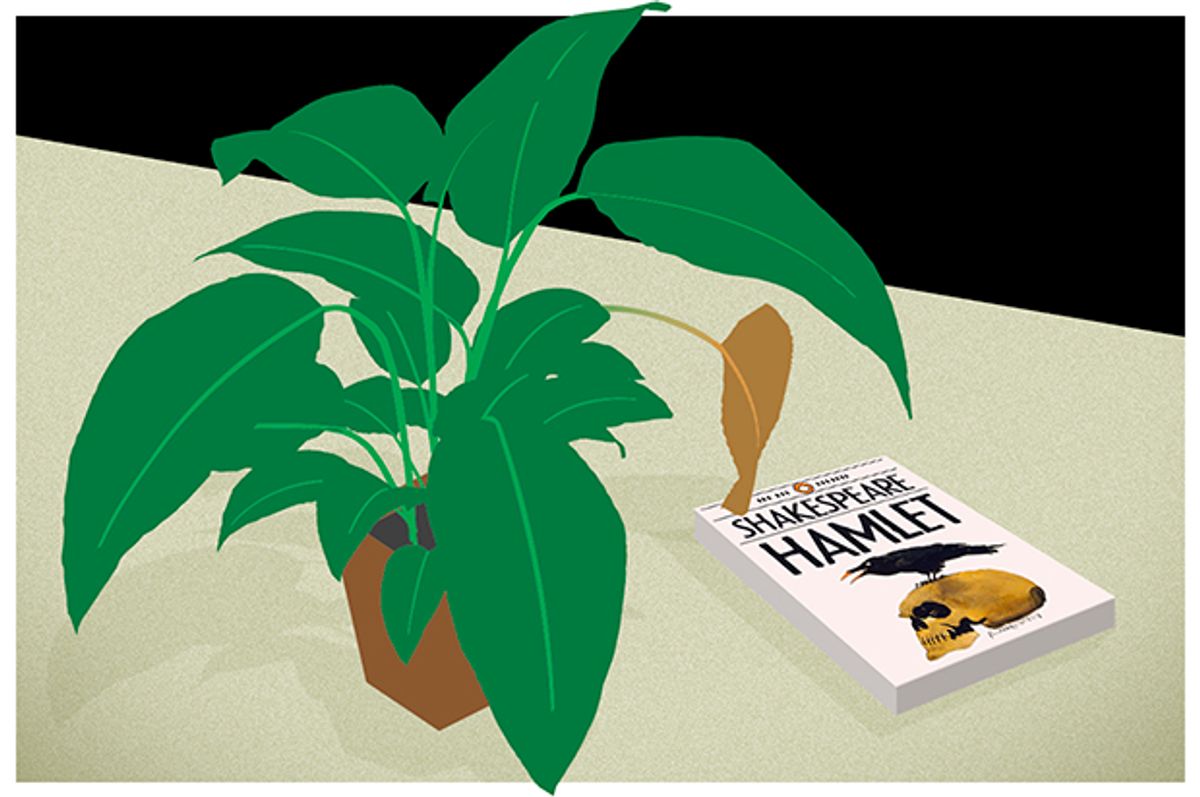When I was diagnosed with a terminal illness, I was determined to not let the disease define me. With the exception of one fundraiser, I declined offers to give talks, blog, or even write a narrative essay about my struggles with the debilitating symptoms of amyotrophic lateral sclerosis (or ALS). While I held to my promise, I hadn't expected that the classic literature I'd been teaching for 30 years would define how I coped with my illness.
I was diagnosed with ALS in August 2015 — on the Friday before school was to resume. I slipped into my classroom that weekend and filled a box with mementos, leaving behind my personal copies of literary masterpieces and cabinets filled with curricula — at least I thought I was abandoning a lifetime of literature.
At first, my only thoughts of school were met with relief. Relief that I had left my job before greeting 150-plus new students, taking them on a journey of uncertainty and loss; at 17, they had plenty else to worry about.
As the months passed, however, my physical strength waned, and unlike the industrious doer I'd been my whole life, I became dependent upon others. After losing the use of my hands, it became difficult to find meaningful ways to spend my time. I despaired having no control over my life. I strove to focus on the moments of the day when I was warmed by a kind word or an image of natural beauty. When I did pause to appreciate these instances, I’d hear the words “This one is warmed . . .”
At first I was at a loss for the source of the line. I was certain it was from a Toni Morrison novel, but when I consulted Google, I was reminded that the phrase harkened from Morrison's Nobel Prize acceptance speech. Near the conclusion of her lecture, she tells a brief story about a wagon filled with slaves journeying to a plantation where their lives will end. The driver stops at an inn for a meal, leaving the slaves shivering in the back of the wagon. Two children tend to the slaves, giving them food and sips of warm cider. Morrison sums up this respite from pain and impending hopelessness: “The next stop would be their last, but this one was warmed.” I too was nearly at my last stop — death — but pausing to appreciate the moments that were warmed by small gestures and glimpses of natural beauty dulled the pangs of despair, and I had Morrison to thank for expressing the ineffable emotions that I may have missed had it not been for her words echoing in my mind.
With my mobility limited and my voice diminished, I would often lie in bed and find myself bothered by ridiculous things: a shriveled leaf on a house plant or a crooked lampshade. When someone entered the room to visit, I would seek a way to ask them to correct the irritant. But if they plucked the wrong leaf or didn't understand me at all, I would usually realize the foolishness of wasting energy on getting my way and somewhere from the recesses of my memory be reminded, “Do not seek to be master of all . . . ”
At first I assumed those words harkened from the New Testament or possibly the humanist Shakespeare, but when Google insisted that Sophocles quilled those lines, I found myself sharing the tragic stage with Oedipus as his brother-in-law Creon admonishes him for failing to learn that fate cannot be circumvented. Oedipus and I both had to learn acceptance. Although acceptance sounds like a passive stance, it would become the hardest work of my life.
Acquiescing to my fate and allowing others to do what they deemed best for my unfamiliar and uncooperative body took patience. But when my confinement to a wheelchair required dismantling my office into a bedroom, replacing my desk with a ramp and my bookcase with a portable commode, I balked. Like Kafka's Gregor Samsa, who awakened to find himself a giant cockroach, I felt alien in appearance and among unfamiliar surroundings. In an attempt to make me more comfortable, my family, like Gregor's, had replaced my furniture — my identity — with utility. I slept in a motorized bed with bars and awoke alone, with a green button to summon my husband to untangle my limp legs from the blankets. Despite the love and care I was receiving, nothing except the occasional dream let me pretend that I was myself.
Eventually all my inner turmoil will have to give way to complete surrender. I'm not quite there yet. But I do hear one of Hamlet's less-famous lines spoken after most of the chaos in the play subsidies: “Let be.” Resonating in those two words is Hamlet's acceptance: “There is special providence in the fall of a sparrow.” I pray that I may soon die accepting this lesson that's taken a lifetime to learn.



Shares